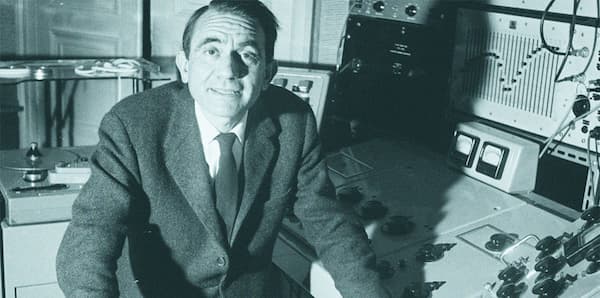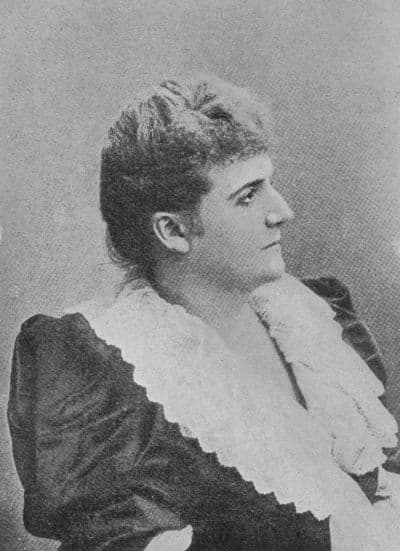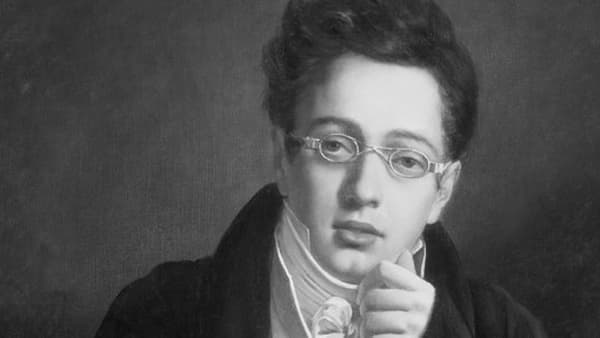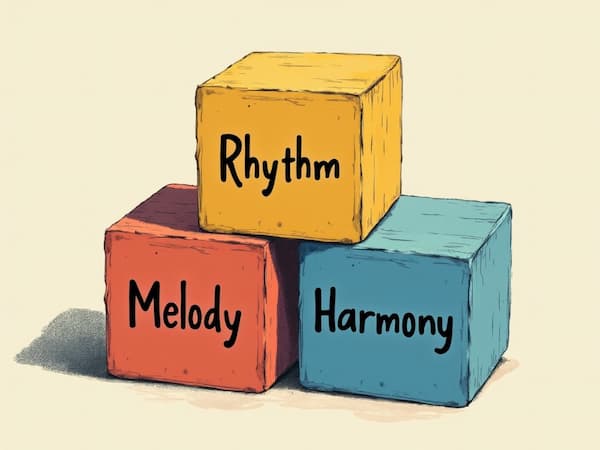The most familiar accompaniment to the voice is the piano, or in earlier days, the guitar or the lute. Putting the voice with larger ensembles runs the risk of drowning the voice in the volume of the other instruments.
One combination that has really been left to 20th-century composers is the voice and string quartet. The colours of the 5 instruments match well and the voice doesn’t get overwhelmed by the strings.
Arnold Schoenberg: String Quartet No. 2, Op. 10
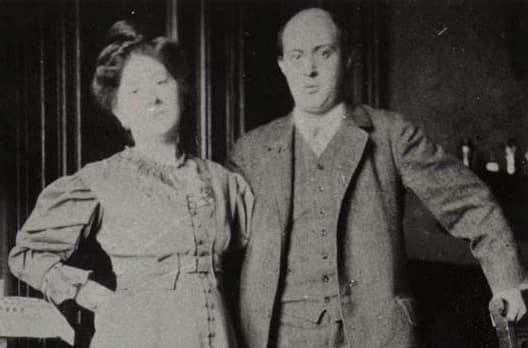
Mathilde and Arnold Schönberg in their apartment in Liechtensteinstraße 68/70, ca. 1907. (Arnold Schönberg Center)
One of the most striking examples of the form was Schoenberg’s 1908 String Quartet No. 2. He started writing in March 1907 and then left it for a year, picking it up again in July 1908 and completing it in September 1908. Schoenberg’s innovation was to add voice to the last two movements. He uses two poems by Stefan Georg, a poet for whom he had a great affinity. Litanei, the first poem is an overjoyed arrival of a traveler at the house of the Lord. The second song, Entrückung (Ecstasy) starts with a line that seems to characterize Schoenberg’s new experiments in music: Ich fühle luft von anderem planeten / I feel the breeze from another planet. The quartet is dedicated to his wife and the two texts emphasize coming to love and happiness through difficulties.
Arnold Schoenberg: String Quartet No. 2, Op. 10 – III. Litanei (Fred Sherry String Quartet)
Arnold Schoenberg: String Quartet No. 2, Op. 10 – IV. Entrückung (Fred Sherry String Quartet)
From Schoenberg’s work, we can get a feeling for the difference that the string quartet provides as accompaniment: it’s darker, deeper, and more expressive than most keyboard performances can give.
Ottorino Respighi: Il tramonto, P. 101
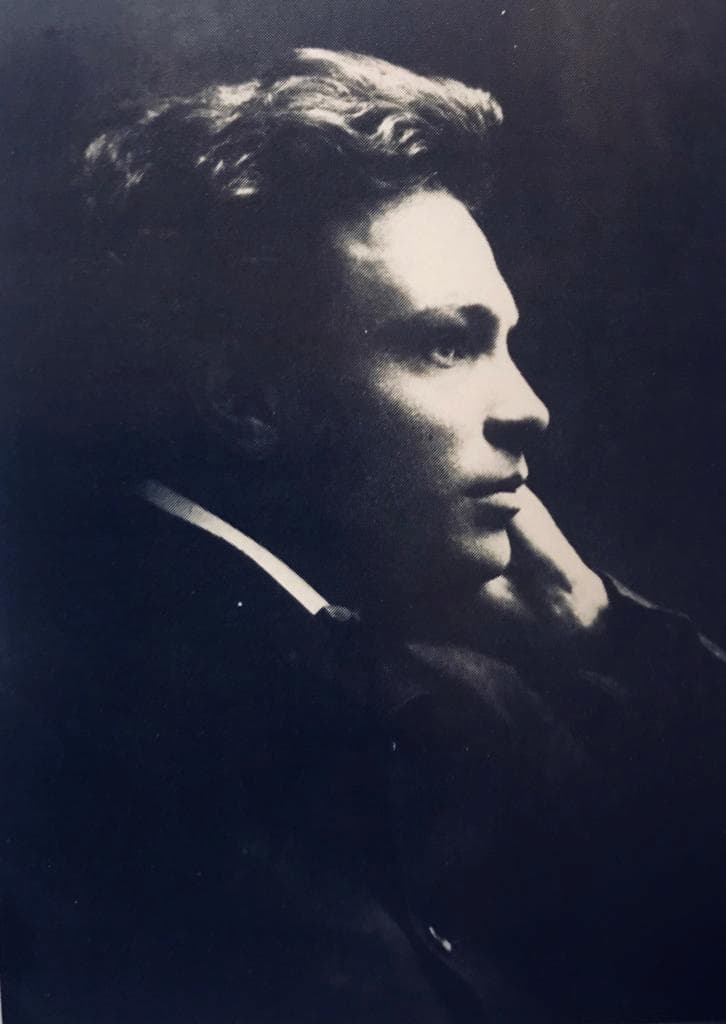
Ottorino Respighi, 1912
Ottorino Respighi’s 1914 work Il tramonto is set to the words of Percy Shelly’s poem The sunset. The poem is one of doomed love – Isabel’s lover dies unexpectedly and she lives on, seemingly worn away, eventually, by time and care for others, but longing for what she lost.
Ottorino Respighi: Il tramonto, P. 101 (Anne Sofie von Otter, mezzo-soprano; Brodsky Quartet)
Othmar Schoeck: Notturno, Op. 47
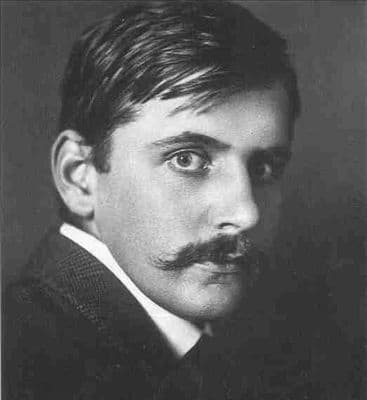
Othmar Schoeck
Swiss composer Othmar Schoeck (1886–957) wrote his Notturno, Op. 47, in 1931-33, setting poems by Nikolaus Lenau and a fragment by Gottfield Keller. In the 5 movements, Schoeck sets 10 poems in 5 movements: 4-1-1-1-3 per movement; like so many of the works in this small genre, this is a dark work, described as Schoeck’s ‘dark night of the soul’ by one writer.
In the single-poem second movement, Traumegewalten, the poet has awoken from a dream so sad he woke up crying as if coming from a funeral; wicked guests had been in his house as he slept and had left, having taken everything from him ‘…and have emptied the wine on the table.’
Othmar Schoeck: Notturno, Op. 47 – No. 2. Presto (Olaf Bär, baritone; Carmina Quartett)
The genre seems to have flourished in the 20th century and the texts seem to be full of pain and sorrow – again, supported by the sympathetic echo of the strings. We’ll close with a poem by Matthew Arnold, Dover Beach, written around 1851. The poem is obscure and difficult, even to modern analysts, but Arnold creates his own soundscape of the drag of the sea on the shingle beach. Arnold finds that sound of the sea to be an ‘eternal note of sadness’. He looks at history and sees how the formerly bright work is now melancholy. He closes with another look around the deserted beach: ‘And we are here as on a darkling plain | Swept with confused alarms of struggle and flight, | Where ignorant armies clash by night’.
Samuel Barber: Dover Beach, Op. 3
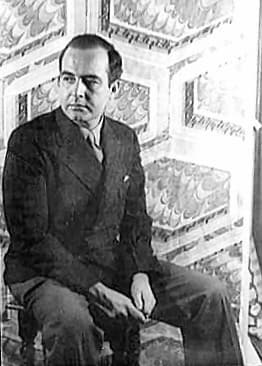
Carl Van Vechten: Samuel Barber, 1944 (Library of Congress)
When Samuel Barber (1910–1981) sang this for Ralph Vaughan Williams while playing the string parts on the piano, Vaughan Williams congratulated him, saying that he had tried his own setting several times but hadn’t been able to complete any. Barber wrote this work in 1931 and it is one of the most famous in this very small genre. Barber saw Arnold’s text as having an almost American pessimism, which makes it seem very modern despite being written solidly in the Victorian period.
Samuel Barber: Dover Beach, Op. 3 (Dietrich Fischer-Dieskau, baritone; Juilliard String Quartet)
Barber’s setting has been described as ‘brooding’, as seems to fit with the other works for voice and string quartet that we’ve examined. The dark qualities of the string quartet fit the somber texts chosen for them. Not all of the works for voice and string quartet are so dark – composers such as Peter Warlock and Vivian Fine set Elizabethan texts this way – but for Schoenberg, Respighi, Schoeck, and Barber, the darkness fits perfectly.
For more of the best in classical music, sign up to our E-Newsletter

